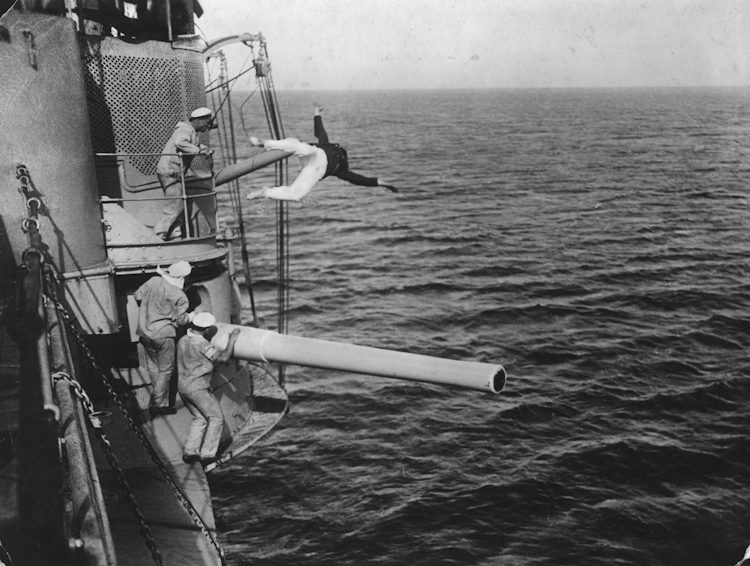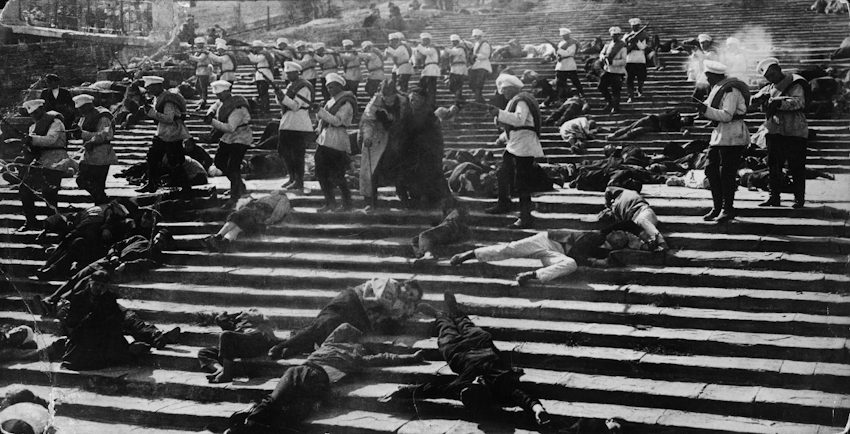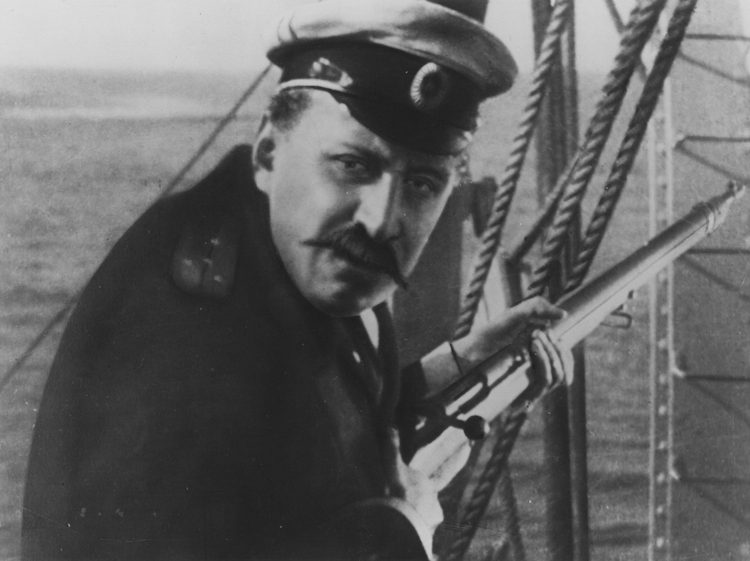A call to arms as urgent now as when it was first released a hundred years ago, the seminal film Battleship Potemkin (1925) was a triumph on both social and artistic fronts. Creating a soundtrack for the film allows artists to rephrase the action on screen, colouring it differently or emphasising a shade of mood. How will The Pit Orchestra reframe famous scenes like the Odessa Steps? Will they include aspects of foley in their sonic arrangements? It remains to be heard.

Battleship Potemkin 2025 Show notes
Plymouth’s eclectic The Pit Orchestra will revive one of its landmark works this December with a special film-with-live-orchestra performance in celebration of the centenary of what is considered one of the greatest films ever created, Battleship Potemkin.
For one night only on 6 December, Plymouth’s University’s The House performing arts centre will journey audiences to a Russian Imperial Navy battleship on the Black Sea when a mutinous uprising by the ship’s crew against their ruthless officers, sparked by spoiled meat, becomes a violent clash and one of the most famous closing scenes in cinema history.

The Pit Orchestra accompanies Sergei Eisenstein’s legendary 1925 silent film, widely considered a masterpiece in early cinema and which was inspired by the failed 1905 Russian Revolution. Its iconic climatic scene – a fictional massacre of civilians on the iconic Odessa steps in Ukraine – is widely studied for its editing and pioneering use of montage.
First commissioned and performed in 2017, the powerful soundtrack was originally composed collectively by The Pit Orchestra members under the guidance of lead composers Tom Richardson, Chris Muirhead and Chris Bailey. It has now been reimagined by Tom Richardson for the 2025 season with technical guidance from the virtuosic, internationally-renowned composer Simon Dobson.

Richardson says, “Battleship Potemkin not only represents a milestone in the grand history of cinema, as well as the shorter history of The Pit Orchestra, it is also a potent symbol of revolution and resistance to established authority and oppression; a position that lies at the heart of The Pit Orchestra’s ethos. We want to honour the film’s legacy, the anti-establishment spirit of Russia’s post-revolution music scene, the geo-political moment in which the centenary is occurring, and our own code of DIY collective action.”
The event forms part of the centenary celebrations of Battleship Potemkin and continues The Pit Orchestra’s mission to breathe new life into classic cinema through live performance. Twelve musicians will perform this moving revival, many of whom will play multiple instruments while also forming a dynamic choir.




The Pit Orchestra is a freely evolving ensemble of trained and untrained musicians who mix classical and modern instruments and transform with every performance. They write original scores, soundtracks and musical accompaniments in collaboration with filmmakers and artists, and are inspired by a wide variety of musical genres including rock, folk, electro, jazz, ambient and classical. The orchestra formed in 2013 (as The Imperfect Orchestra) and has consistently maintained principles of collaboration, artistic expression, diversity, inclusivity and, perhaps most importantly, celebration of the amateur.
The Ukrainian Singers of Plymouth will open the event with a performance of traditional and contemporary Ukrainian music.
Also, as part of the centenary celebrations, later in December The Pit Orchestra will create a new, high-quality recording of their original Battleship Potemkin score.
Battleship Potemkin 2025 tickets go on sale Friday 5 September via www.thepitorchestra.com.
Images courtesy of BFI, Battleship Potemkin 2025 is supported using public funding by Arts Council England.
Battleship Potemkin 2025
Centenary performance of The Pit Orchestra’s unique film-with-live-orchestra experience
The House, Plymouth University, Drake Circus, Plymouth, PL4 8AA
Tuesday, 6 December. Doors open 7.30pm

The aim of art is to represent not the outward appearance of things, but their inward significance. – Aristotle






















